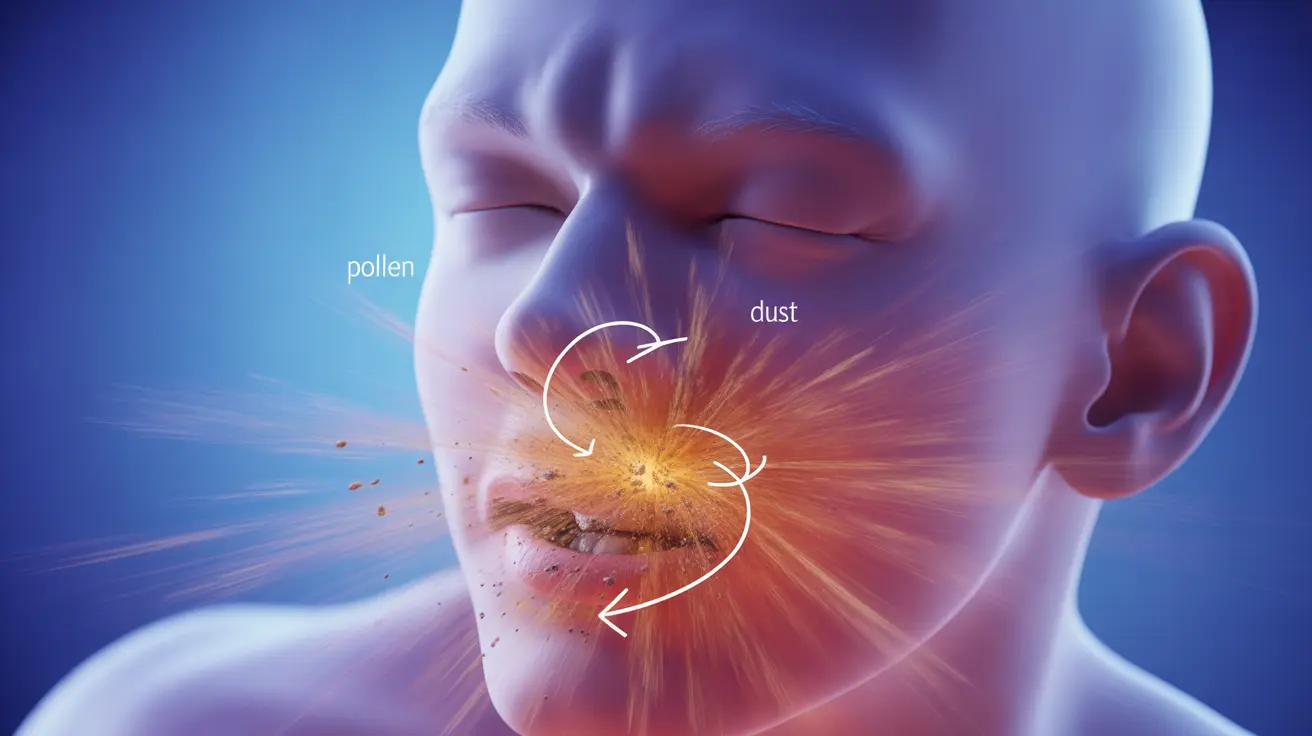Sneezing is a natural reflex that plays a crucial role in protecting our respiratory system. This powerful, involuntary reaction helps clear our nasal passages of irritants, allergens, and potential pathogens, acting as one of our body's first lines of defense against respiratory threats. While occasional sneezing is completely normal, understanding its causes and implications can help us better manage our respiratory health.
The Science Behind Sneezing
When irritants or foreign particles enter our nasal passages, specialized nerve endings detect these substances and signal the brain. This triggers a complex reflex involving multiple muscle groups, resulting in the forceful expulsion of air, mucus, and irritants at speeds that can exceed 100 miles per hour. This automatic response helps maintain the cleanliness and health of our respiratory system.
Common Triggers and Causes
Various factors can initiate the sneezing reflex, ranging from environmental irritants to underlying medical conditions:
Environmental Triggers
- Dust and pollen
- Pet dander
- Mold spores
- Strong odors or perfumes
- Air pollution
Medical Causes
- Allergic rhinitis (hay fever)
- Upper respiratory infections
- Common cold or flu
- Sinus infections
- Nasal irritation
The Photic Sneeze Reflex
Approximately 18-35% of the population experiences what's known as the photic sneeze reflex or ACHOO syndrome (Autosomal Dominant Compelling Helio-Ophthalmic Outburst). This genetic trait causes some individuals to sneeze when exposed to bright light or sunlight. While harmless, this interesting phenomenon demonstrates the complex nature of our nervous system's responses.
Prevention and Management Strategies
While it's impossible to completely prevent sneezing, several strategies can help reduce its frequency:
Lifestyle Modifications
- Regular cleaning to reduce dust and allergens
- Using air purifiers
- Maintaining proper indoor humidity
- Avoiding known triggers
- Using protective masks in dusty environments
Medical Interventions
For persistent sneezing related to allergies or other medical conditions, various treatment options are available:
- Antihistamines
- Nasal corticosteroids
- Decongestants
- Immunotherapy (for severe allergies)
When to Consult a Healthcare Provider
While most sneezing episodes are harmless, certain situations warrant medical attention. Seek professional help if you experience:
- Persistent sneezing that interferes with daily activities
- Sneezing accompanied by severe nasal congestion
- Additional symptoms like fever or body aches
- Chronic allergic reactions that don't respond to over-the-counter treatments
Frequently Asked Questions
What are the most common causes and triggers of sneezing? The most common triggers include allergens like pollen and dust, viral infections, irritants such as strong odors, and environmental factors like sudden temperature changes or bright light exposure in some individuals.
How does sneezing help protect the respiratory system from infections? Sneezing expels potentially harmful particles, allergens, and microorganisms from the nasal passages at high speeds, helping to clear the airways and prevent these substances from reaching deeper into the respiratory system.
What are practical ways to reduce or prevent frequent sneezing episodes? Regular cleaning, using air purifiers, avoiding known triggers, maintaining good indoor air quality, and using appropriate medications like antihistamines when necessary can help reduce sneezing frequency.
Can bright light or sunlight really cause sneezing, and why does this happen? Yes, this phenomenon, known as the photic sneeze reflex, affects up to 35% of the population. It's believed to occur due to crossed wiring between the trigeminal nerve (responsible for facial sensations) and the optic nerve.
When should I see a doctor if my sneezing is persistent or severe? Consult a healthcare provider if sneezing significantly impacts your daily life, is accompanied by severe symptoms like fever or difficulty breathing, or if over-the-counter treatments aren't providing relief.




